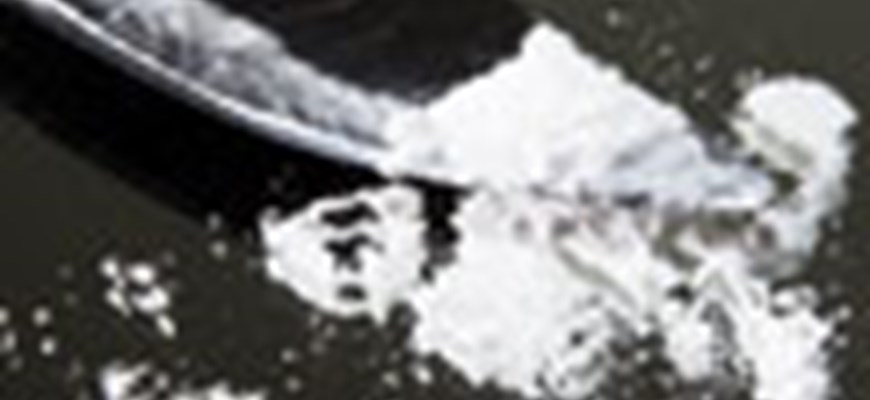
Romanian international footballer Adrian Mutu tested positive for cocaine derivatives; his then club Chelsea FC dismissed him and sued for substantial damages. Following an award against him by FIFA, Mutu’s final appeal failed last month. It is worth recapping on the history and facts of the case.
Three claims
Chelsea signed Mutu for €22,500,000 in August 2003, on a five year contract worth £2,350,000 per annum, plus a signing fee of £330,000 paid in five instalments. On 1 October 2004 a targeted drug test by the Football Association returned a positive finding for cocaine. Chelsea terminated Mutu’s contract with immediate effect on 28 October 2004. The FA’s Disciplinary Commission imposed a seven-month ban from Mutu playing football, commencing 25 October 2004. The FIFA Disciplinary Committee adopted the sanction, thus giving the ban worldwide effect.
Mutu appealed the termination before the Board of Directors of the FA Premier League. The board appointed a panel to hear various disputes, including Chelsea’s claim for compensation for material breach of contract. Mutu meantime registered for an Italian club and began playing in Italy once his ban expired. He now plays for Fiorentina. In April 2005 the FAPL’s Appeals Committee decided that Chelsea had been entitled to terminate Mutu’s contract. Mutu’s appeal to the Court of Arbitration for Sport (CAS) was dismissed. Chelsea then lodged a claim for compensation with FIFA’s Dispute Resolution Chamber. The DRC ruled that it did not have jurisdiction to determine the matter. Chelsea appealed to CAS, which in its second award in this matter found in Chelsea’s favour.
In August 2007 Chelsea submitted a new application to DRC seeking (i) the wasted costs of acquiring the player (£13,814,000); (ii) the cost of replacing the player (£22,661,641); (iii) the unearned portion of the signing bonus (£44,000) and other benefits received by the player from the club (£3,128,566.03) as well as from his new club, Juventus (unknown); (iv) legal costs of £391,049.03; and (v) the unquantifiable but undeniable cost “in playing terms and in terms of the Club’s commercial brand values… at least equivalent to the replacement cost of £22,661,641”. The DRC awarded the club the sum of €17,173,990 in a decision dated 7 May 2008. Mutu’s appeal against this decision, which he described as “inhumane and unjust”, led to CAS’s third and final decision in the matter. CAS upheld the money award (now amounting to approximately £14.65m), plus substantial interest and costs.
Compensatable costs
The third arbitration was referred to an international panel. Parties, their witnesses and legal representatives appeared in a hearing at the CAS office in Lausanne on 7 May 2009. The panel had to determine a number of sophisticated legal arguments both for Mutu and the club, but ultimately considered that the first and foremost question was whether or not the quantification of damages by the DRC found a sufficient legal basis in the applicable rules, i.e. the FIFA Regulations and English law as the governing law of the contract of employment. The panel found that the compensation that a player breaching an employment contract has to pay can be based on the unamortised acquisition costs, this being fully consistent with article 22 of the regulations and with English law. Not only in this basis explicitly provided by article 22, it has also consistently been upheld in CAS jurisprudence, including the cases of Ortega, Matuzalem and Webster (see Journal, June, 49).
The compensation figure was largely based on acquisition costs and lost earnings, and was calculated to include the length of time Mutu’s contract had left to run when he broke it by taking cocaine. It was the highest compensation order ever handed down by FIFA. Chelsea welcomed the verdict, calling it “a very significant decision for football”. Chelsea’s statement issued at the time continued: “Not only did the Dispute Resolution Chamber make us a very significant monetary award, it also recognised the damaging effect incidents involving drugs have on football and the responsibility we all have in this area”.
The implications of the Mutu decision may be profound for sport. Doping offences are typically met with suspension, impacting on earnings, but this dispute and the action taken by Chelsea shows that it is very possible that the sportsperson concerned may face not only loss of employment and sporting sanctions in the form of a lengthy suspension from the sport, but also a sizeable bill to their former backers, whether that be a sports club, national association or sponsor. Mr Adrian Mutu must be very worried about Chelsea’s next step to enforce the award, should it remain unpaid.
In this issue
- Internet use in the workplace: a digital dilemma?
- Mental Welfare Commission for Scotland under threat
- Tricky choice over Liechtenstein assets
- Cost and benefit
- Curators: the vital link
- Solicitor advocates: the future (part 2)
- Trainee recruitment: dialogue continues
- What sort of life?
- Registers page
- Foot on the ladder
- Recovery vehicle
- Your say
- Lawyers in their sights
- West Bank: a response
- Fairness guide to success
- Facebook debate pulls them in
- Law reform update
- Ahead of the game
- Ask Ash
- A club you don't want to join
- Stress busters
- Into the ether we go!
- Breaking up is hard to do
- Definitive view
- Right that doesn't pale
- Mutu point
- Once bitten, twice shy
- Scottish Solicitors' Discipline Tribunal
- Website review
- Book reviews
- FSA starts to fight back
- For a good clause







